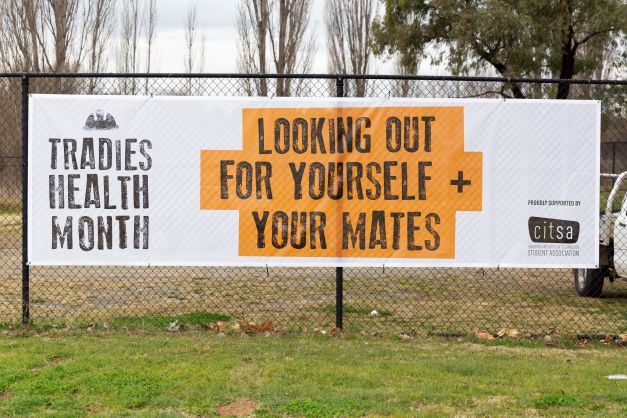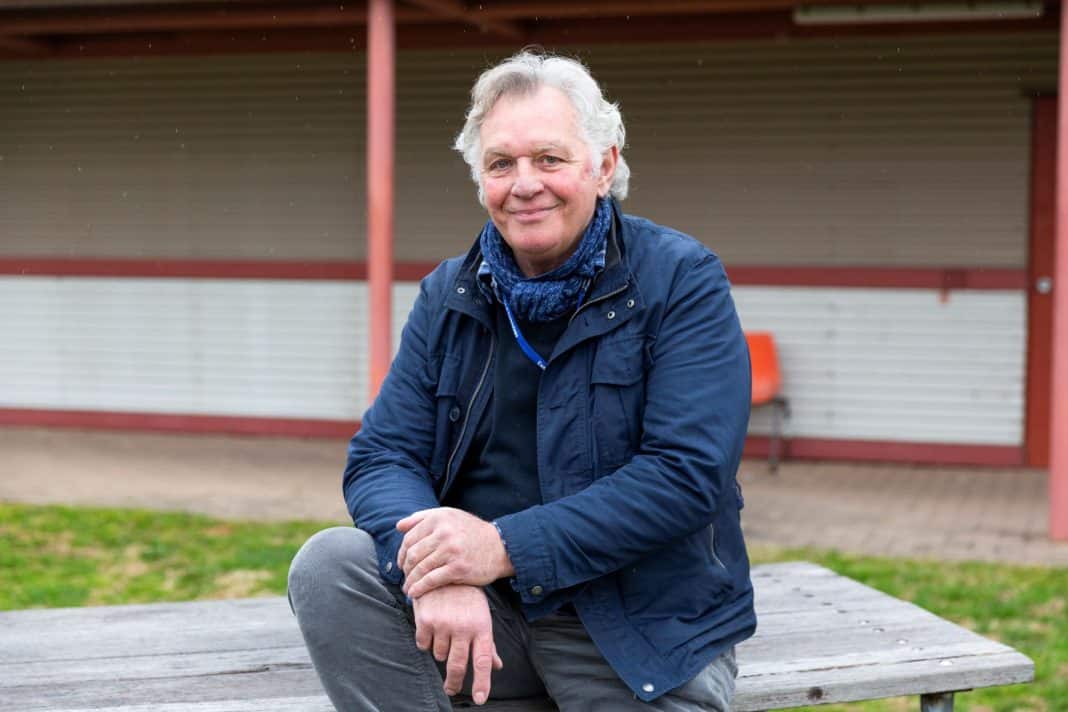As Tradies Health Month comes to a close, it is crucial that young apprentices keep an eye on their mental and physical wellbeing all year round, says student advisor at CIT Fyshwick, Kevin Ruddick.
“When you’re lugging things around all day, being very physical, the last thing you want to do when you get home is go to the gym or cook the right sorts of food. It’s the nature of the beast.
“A lot of them are up at the crack of dawn, some travelling long distances from rural areas, and on the job by seven. You can get very little sleep.”
To raise awareness throughout August, Steel Blue and Beyond Blue published a survey of workers and employers in the trades, construction, resources, manufacturing, and agriculture sectors, on the state of their mental health.
Out of more than 900 respondents, one in three reported experiencing high or very high levels of psychological distress in the 30 days before completing the survey.
One in two blue collar workers reported experiencing feelings of hopelessness (54 per cent), extreme sadness (51 per cent) and worthlessness (48 per cent).
Mr Ruddick states that apprentices probably don’t neglect their health more than any other young professional with long hours.
However, he’s unsure whether employers list tradies’ emotional health or physical health as a primary goal. This is despite many trades “crying out for apprentices and wanting to keep them there,” he says.
Steel Blue and Beyond Blue’s research found one in four participants reported taking extended periods of time off work because of a physical injury in the workplace. Over half those respondents said the injury negatively impacted their mental health.
Dr Grant Blashki, lead clinical adviser at Beyond Blue, weighed in. “As a GP, I see that when tradies have a physical injury, it’s often a triple whammy as they have to put up with the pain of the injury, it affects their livelihood, and for many it can be a real knock to their sense of identity.”
Yet when it comes to speaking up and sharing the load, one in five tradies would not tell anyone if they had depression, nor would they seek support for their own mental health and wellbeing.
This may be explained by the one in 20 participants who admitted they considered depression a sign of personal weakness.
“What this survey is telling us is that mental health problems are common amongst tradies, causing significant distress, though many still feel embarrassed to speak openly or seek assistance,” said Dr Blashki.
Mr Ruddick, a fitter by trade who went on to work in youth outreach for over two decades, reflected on his lived experience as an apprentice.
“Back then, the older guy stepped aside and got the young guy to do all the lifting, lugging, and swinging.
“As much as our culture has changed for the better, young men show their emotions a lot more, there’s still an element of who’s the toughest? Who’s the biggest? Who’s the strongest? So, they end up lifting more than they should.”
Mr Ruddick describes his role at CIT Fyshwick as “roadside assist for students in distress”.
“I can check your oil and your water levels, pump your tyres up, and get you back on the road, and in serious incidents, direct you to the shop (counsellors).”
He noted that the number one distressing sign he sees in apprentices that often goes overlooked is waking up at 3am. He observes that in general, apprentices are not getting enough sleep.
“If you’re struggling with life, sleep is the first thing that goes out the window. Particularly, that three o’clock wakeup call is a real flag for onset depression.”
For support for anxiety, depression, and suicide prevention in Australia, call Beyond Blue at 1300 22 4636.

Canberra Daily is keen to hear from you about a story idea in the Canberra and surrounding region. Click here to submit a news tip.



